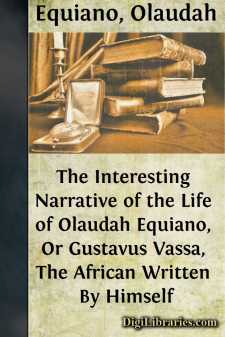Categories
- Antiques & Collectibles 13
- Architecture 36
- Art 48
- Bibles 22
- Biography & Autobiography 813
- Body, Mind & Spirit 142
- Business & Economics 28
- Children's Books 15
- Children's Fiction 12
- Computers 4
- Cooking 94
- Crafts & Hobbies 4
- Drama 346
- Education 46
- Family & Relationships 57
- Fiction 11828
- Games 19
- Gardening 17
- Health & Fitness 34
- History 1377
- House & Home 1
- Humor 147
- Juvenile Fiction 1873
- Juvenile Nonfiction 202
- Language Arts & Disciplines 88
- Law 16
- Literary Collections 686
- Literary Criticism 179
- Mathematics 13
- Medical 41
- Music 40
- Nature 179
- Non-Classifiable 1768
- Performing Arts 7
- Periodicals 1453
- Philosophy 64
- Photography 2
- Poetry 896
- Political Science 203
- Psychology 42
- Reference 154
- Religion 513
- Science 126
- Self-Help 84
- Social Science 81
- Sports & Recreation 34
- Study Aids 3
- Technology & Engineering 59
- Transportation 23
- Travel 463
- True Crime 29
The Interesting Narrative of the Life of Olaudah Equiano, Or Gustavus Vassa, The African Written By Himself
by: Olaudah Equiano
Categories:
Description:
Excerpt
The author's account of his country, and their manners and customs—Administration of justice—Embrenche—Marriage ceremony, and public entertainments—Mode of living—Dress—Manufactures Buildings—Commerce—Agriculture—War and religion—Superstition of the natives—Funeral ceremonies of the priests or magicians—Curious mode of discovering poison—Some hints concerning the origin of the author's countrymen, with the opinions of different writers on that subject.
I believe it is difficult for those who publish their own memoirs to escape the imputation of vanity; nor is this the only disadvantage under which they labour: it is also their misfortune, that what is uncommon is rarely, if ever, believed, and what is obvious we are apt to turn from with disgust, and to charge the writer with impertinence. People generally think those memoirs only worthy to be read or remembered which abound in great or striking events, those, in short, which in a high degree excite either admiration or pity: all others they consign to contempt and oblivion. It is therefore, I confess, not a little hazardous in a private and obscure individual, and a stranger too, thus to solicit the indulgent attention of the public; especially when I own I offer here the history of neither a saint, a hero, nor a tyrant. I believe there are few events in my life, which have not happened to many: it is true the incidents of it are numerous; and, did I consider myself an European, I might say my sufferings were great: but when I compare my lot with that of most of my countrymen, I regard myself as a particular favourite of Heaven, and acknowledge the mercies of Providence in every occurrence of my life. If then the following narrative does not appear sufficiently interesting to engage general attention, let my motive be some excuse for its publication. I am not so foolishly vain as to expect from it either immortality or literary reputation. If it affords any satisfaction to my numerous friends, at whose request it has been written, or in the smallest degree promotes the interests of humanity, the ends for which it was undertaken will be fully attained, and every wish of my heart gratified. Let it therefore be remembered, that, in wishing to avoid censure, I do not aspire to praise.
That part of Africa, known by the name of Guinea, to which the trade for slaves is carried on, extends along the coast above 3400 miles, from the Senegal to Angola, and includes a variety of kingdoms. Of these the most considerable is the kingdom of Benen, both as to extent and wealth, the richness and cultivation of the soil, the power of its king, and the number and warlike disposition of the inhabitants. It is situated nearly under the line, and extends along the coast about 170 miles, but runs back into the interior part of Africa to a distance hitherto I believe unexplored by any traveller; and seems only terminated at length by the empire of Abyssinia, near 1500 miles from its beginning. This kingdom is divided into many provinces or districts: in one of the most remote and fertile of which, called Eboe, I was born, in the year 1745, in a charming fruitful vale, named Essaka. The distance of this province from the capital of Benin and the sea coast must be very considerable; for I had never heard of white men or Europeans, nor of the sea: and our subjection to the king of Benin was little more than nominal; for every transaction of the government, as far as my slender observation extended, was conducted by the chiefs or elders of the place....


